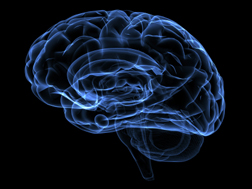 Musmanno also advises that you look for an attorney who has experience in handling traumatic brain injury (TBI) and/or personal injury cases. "The best way to find a good personal injury attorney is word of mouth," says Musmanno. "There are so many advertisements on TV and online that are very misleading. You may think that someone is good because they have four stars next to their name but that's generally not the case. Ask around, and if you have a personal recommendation, you are probably in good hands."
Musmanno also advises that you look for an attorney who has experience in handling traumatic brain injury (TBI) and/or personal injury cases. "The best way to find a good personal injury attorney is word of mouth," says Musmanno. "There are so many advertisements on TV and online that are very misleading. You may think that someone is good because they have four stars next to their name but that's generally not the case. Ask around, and if you have a personal recommendation, you are probably in good hands."Whenever possible, an attorney will see the victim in the hospital, gather medical records and make sure the patient is treated by a neurologist. "Some people suffer a brain injury to the extent that they lose cognitive function and motor skills, and some just have a mild concussion," says Musmanno. "The severity can differ greatly and so does the value of the case. As a rule, a brain injury requires immediate hospitalization; CAT Scats and MRIs on the brain—a closed head injury isn't like a neck sprain. Closed head or TBI injury is just an example; a person should consult an attorney in any accident—irrespective of the type of injury—to understand the intricacies involved."
According to the Centers for Disease Control, each year an estimated 1.7 million traumatic brain injury (TBI) or concussion-related emergency room (ER) visits, hospitalizations and deaths occur in the US. Of this amount, nearly 1.365 million people are treated and released from an ER, 275,000 are hospitalized and 52,000 die.
The latest CDC report found an approximate 60 percent increase in the estimated number of concussions and other TBI in young athletes over the past 10 years—but experts say that might be good news as it corresponds with a growing awareness of TBI, mainly driven by parents, coaches and kids.
The researchers studied all non-fatal TBI in kids and teens younger than 19, including skull fractures and bleeding in the brain, from 66 hospital emergency departments between 2001 through 2009. (Most injuries were associated with soccer, basketball and bicycling.) They found that the rate of head injury increased from 153,375 in 2001 to 248,418 in 2009. The researchers said that this increased number shows visits to emergency rooms only and it does not reflect an increase in admissions, suggesting that supervising adults are more frequently taking their kids to the ER to check for any brain injury.
"These injuries were always there. It's not that there are more injuries now. It's just that now people are getting treatment that they weren't getting before," said Steven Marshall, interim director of the University of North Carolina's Injury Prevention and Research Center.
Dr. Ryan Lynch echoes Mussmano's view on how imperative it is to seek help with any kind of brain injury. He says that concussions "are becoming more commonplace in our culture. While there are still some who view them as a benign injury, they can be very debilitating. We need to treat them aggressively and thoroughly just like any other disease, and hopefully find better ways to prevent them altogether.
READ MORE BRAIN INJURY LEGAL NEWS
"A mild concussion claim depends on the state, but you can make a claim for bodily injury," says Mussmano. "Obviously it would not be a very valuable injury, but generally attorneys work on a contingency basis so they only collect when the person gets a monetary settlement. And there are no rules to the length of recovery. Most TBI victims wait a reasonable period of time for litigation but they generally plateau at some point and won't get any better."
